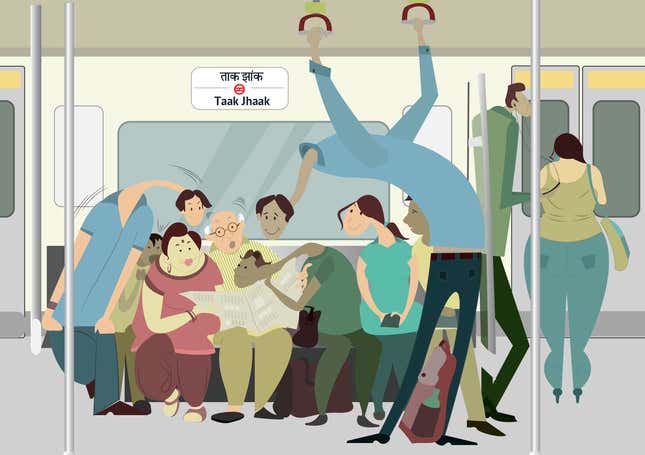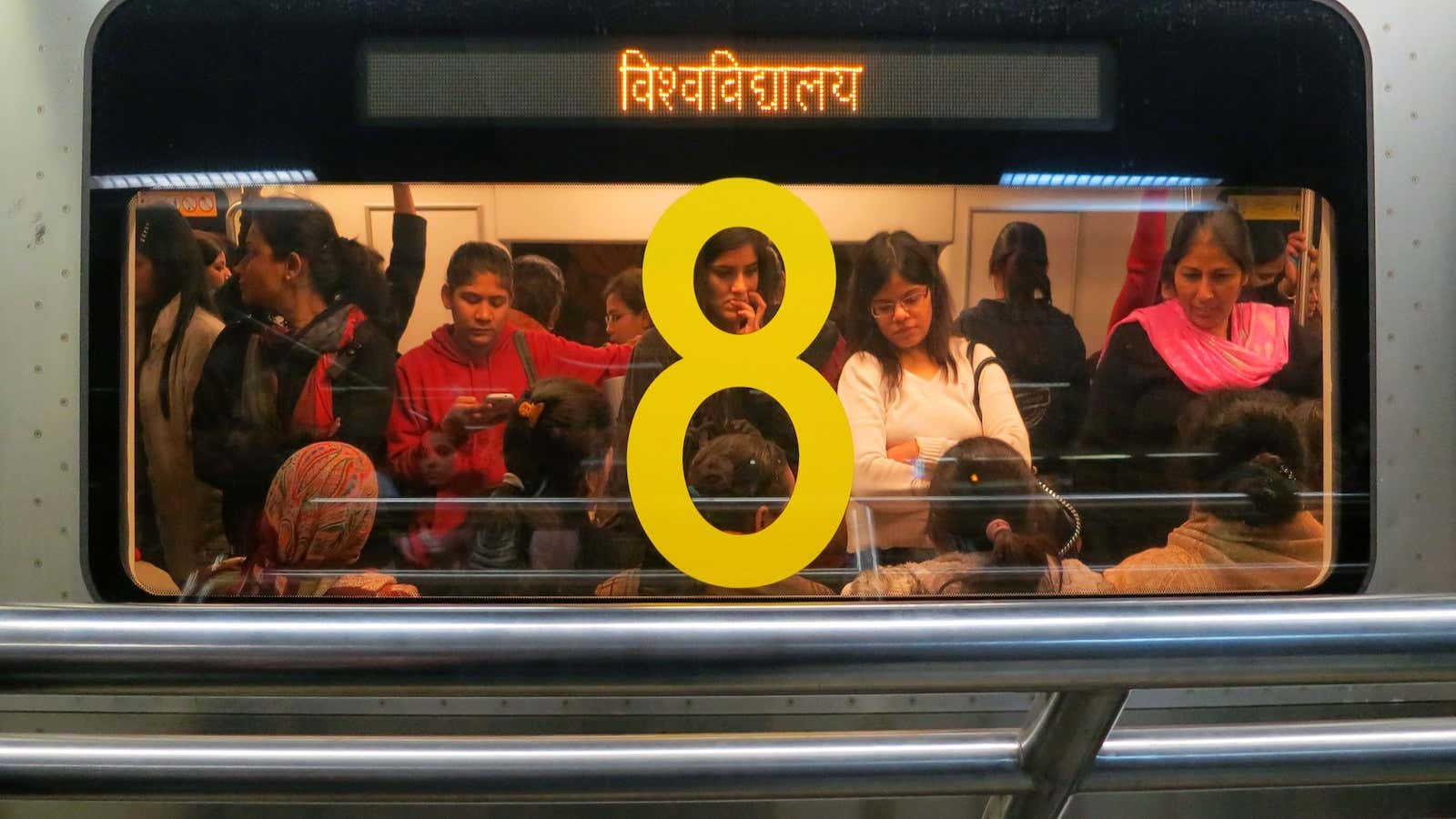New York City’s subway system has unveiled a campaign this month to combat a distasteful habit among male riders: manspreading.
The term refers to a posture in which a man sits with his legs spread wide into a V-shape, inconsiderately occupying neighbouring seats.
The problem has become so disturbing to New Yorkers that the Metropolitan Transportation Authority, which manages the NYC metro, is going to put placards inside subway cars urging male passengers to contain their legs and be more courteous to fellow commuters.
The message is straightforward: Dude…stop the spread, please. It is a space issue.

As effective as this ad campaign might be, anti manspreading campaigners can also look for ideas half way across the world.
In New Delhi (and elsewhere in India), metro riders have never had to fight such a scourge—in fact, they could even risk bodily harm if they dare to exhibit such inelegant postures in public.
Instead, in India’s densely populated national capital, commuters make sure that every inch counts, so much so that often elbow room becomes a rare commodity.
“Thoda adjust karlo” —”adjust slightly”—has become the mantra for negotiating treacherous Indian trains during rush hour, as commuters—some grossly underestimating their girth—try to squeeze themselves into any available free space inside packed compartments.
As a result, a seat meant for one person, is often occupied by one-and-a-half human beings, if not two.
And while it can be severely uncomfortable to sit cheek-by-jowl with strangers, sometime it is heartening to see passengers go out of their way to accommodate an additional person.
Not to say that Indian trains do not have their share of boorish travellers. Manish Minglani of Ogilvy & Mather and Ashwani Nagar, an art student, recently created a series called Life in a Metro, a collection of 12 digital paintings that depict the thoughtless behaviour—from cutting queues to sitting on the floor—of passengers.
The drawing below, for instance, captures the excessive—and annoying—physical intimacy between strangers in Delhi metro.

Obviously, most women do not want to sit so tightly packed with a male passenger, yet such behaviour became a norm once Delhi metro launched a ladies-only compartments in 2010. Now, both women and men unabashedly ask fellow travellers of the same gender to make space for them.
Commuters who resist such request—refusing to cross their legs, tuck their elbows and crunch their shoulders—are often subjected to angry glares, and sometimes abuses.
In other words, personal space is a luxury on most modes of Indian public transport. It is a way of life.
Perhaps, New Yorkers should stop outraging over manspreading—and thoda adjust.
We welcome your comments at ideas.india@qz.com.
